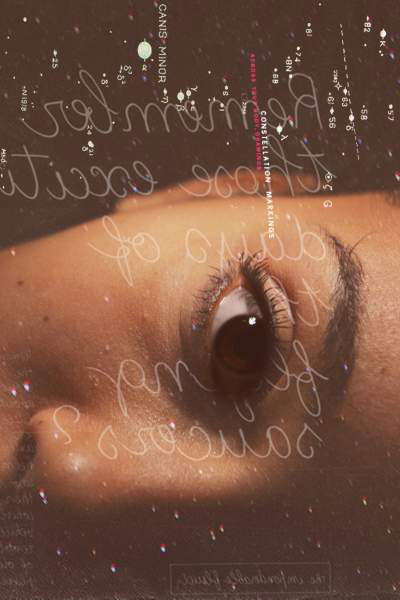All Nonfiction
- Bullying
- Books
- Academic
- Author Interviews
- Celebrity interviews
- College Articles
- College Essays
- Educator of the Year
- Heroes
- Interviews
- Memoir
- Personal Experience
- Sports
- Travel & Culture
All Opinions
- Bullying
- Current Events / Politics
- Discrimination
- Drugs / Alcohol / Smoking
- Entertainment / Celebrities
- Environment
- Love / Relationships
- Movies / Music / TV
- Pop Culture / Trends
- School / College
- Social Issues / Civics
- Spirituality / Religion
- Sports / Hobbies
All Hot Topics
- Bullying
- Community Service
- Environment
- Health
- Letters to the Editor
- Pride & Prejudice
- What Matters
- Back
Summer Guide
- Program Links
- Program Reviews
- Back
College Guide
- College Links
- College Reviews
- College Essays
- College Articles
- Back
How Webtoons Helped Me Confront The Beauty Bias
I usually ignored the pesky Youtube ads before the video, skipping them as soon as I could without giving them a second glance. But this ad in particular was different. The art style was cloyingly familiar, reminiscent of the Korean cartoons that my dad would read on his phone on Sunday mornings. The ad was for a webcomic called True Beauty. Unable to resist the temptation, I downloaded the WebToon app that day and quickly began reading the series.
True Beauty follows the story of Jugyeong, a Korean teenager who struggles with self-confidence for the majority of her adolescence. She is seen as the “ugly” girl at school— the one who’s ignored and bullied by her classmates and even random people in her neighborhood. After many years of horrible treatment, she happens to stumble upon a Youtube makeup tutorial that catalyzes her journey with makeup. With a few mishaps and failures, Jugyeong—as expected—perfects her makeup skills, gets rid of the glasses, and somehow learns to curl her hair to perfection! She’s now the “pretty” girl at school, and everyone decides to treat her differently. The middle aged men at McDonald’s no longer scoff at her in line, the kids at school turn heads as she walks down the hallway, and the boys in her class ask HER for her number, and not the other way around. With her makeup on, Jugyeong is a person to be admired and desired. But the makeup has to come off at some point, and this is where the readers are introduced to the idea that beauty is a commodity. As social critic Kimberly Foster argues, “Beauty is the primary form of power that women have access to,” and this is definitely true in Jugyeong’s case. Her appearance completely changes the way that people treat her, and her own personality seems to reflect her outwardly appearance. When she has her makeup on, Jugyeong is popular and socially respected, and without it, she’s a comic book loving fanatic who listens to punk rock music. The dichotomy cannot be more clear.
There are a couple tropes in this webcomic that are rather problematic, most notably being the stereotype of how “ugly” girls are portrayed in the media. In her “ugly” stages in life, Jugyeong has acne, wears glasses, and usually has her hair in a ponytail. The “girl gets rids of her glasses for contacts and suddenly looks pretty” trope is reinforced time and time again, and this webcomic is a perfect representation of how this theory is sadly still relevant. That being said, I do think that this part of Jugyeong’s personality may have been necessary to get the underlying message of the webcomic across.
Beauty is used as a form of structural inequality.
The “beauty bias” is an idea that suggests physically attractive people are socially rewarded.
This concept isn’t something that we simply assume to be true. Studies from Rice University and MIT suggest that attractive people are more likely to be offered job interviews, startup pitches, and even be considered more trustworthy. Although these types of situations are not necessarily apparent in True Beauty, the storyline emphasizes that people are inherently drawn to certain aesthetics and types of beauty. I was confronted with my own biases on several occasions throughout the webtoon. I had an underlying desire for Jugyeong’s most important life moments to happen when she was wearing makeup, and therefore presented a certain beauty aesthetic. Whether it be her first kiss, her first date, or her first encounter with another character, I expected these beautiful moments to be associated with conventionally beautiful physical features. In my mind, the worth of a moment was tied to the conventionally attractive value that it offered. Years of romanticized Disney movies and Hollywood films have worked to reinforce this association: the “what-is-beautiful-is-good” stereotype.
More than just a feel-good webcomic, True Beauty has forced me to confront my own attitudes about aesthetics and the harmful associations that we make from them. The beauty bias is real, and unless we begin to realize the structural power that it has, it’s here to stay.

Similar Articles
JOIN THE DISCUSSION
This article has 0 comments.
